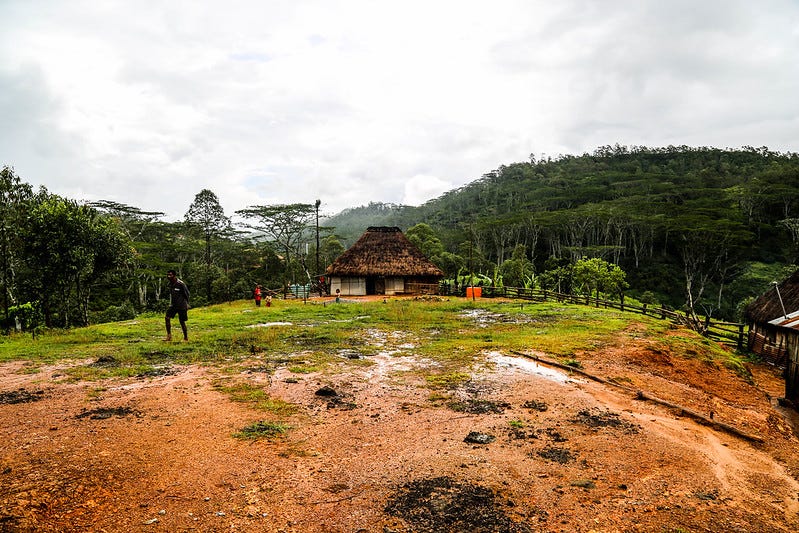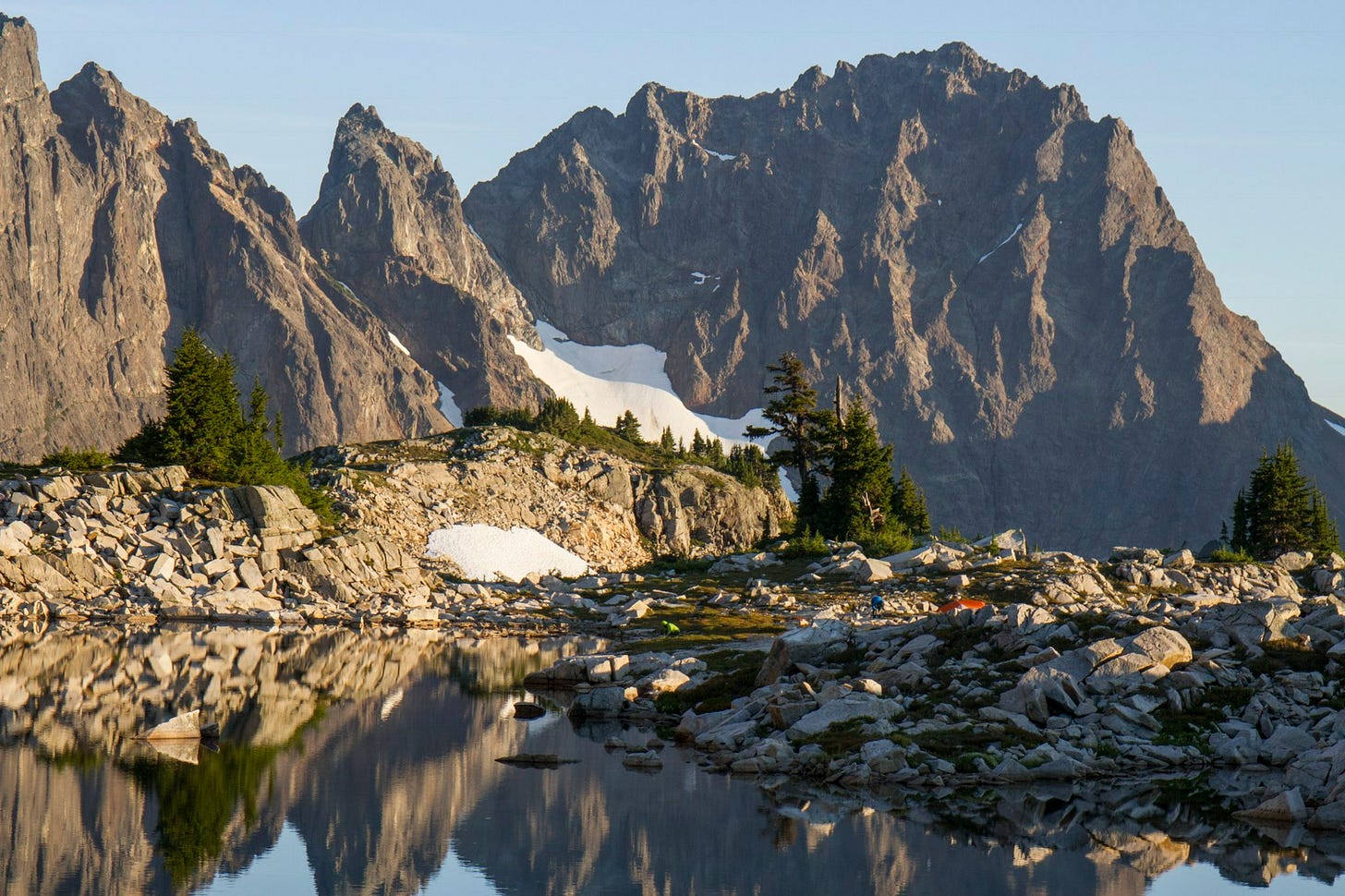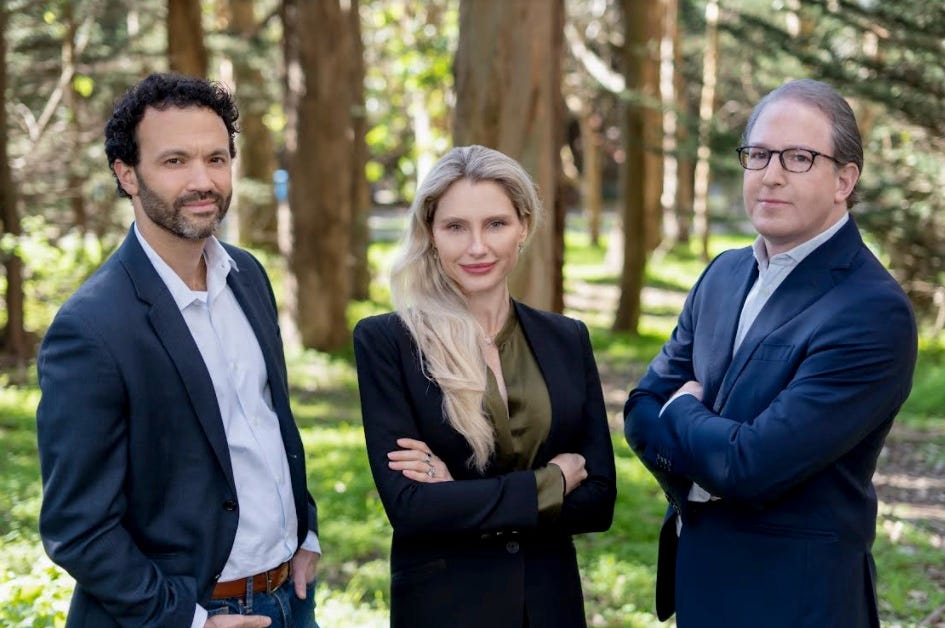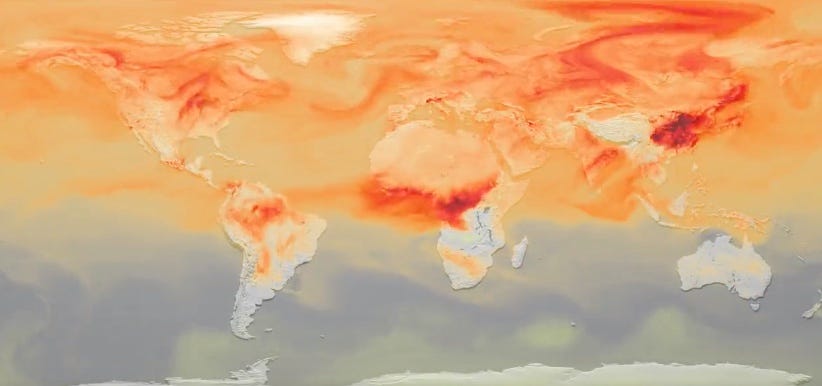Tug of war between oil and renewables as Europe readies Russian ban
Welcome to Callaway Climate Insights. And especially to our new subscribers. Please enjoy and share with your colleagues.
To read all our insights, news and in-depth interviews, please subscribe and support our great climate finance journalism. Callaway Climate Insights publishes Tuesdays and Thursdays for everybody.
March continued the planet’s exceedingly warm start to 2022, ranking as the fifth-warmest March in 143 years, NOAA says. Nine tropical storms formed globally in March, tying as the second-highest number of tropical storms in March. Antarctic sea ice coverage was just 1.09 million square miles, the second-smallest extent for March in the 44-year record. Above, sea ice near Scott Base in Antarctica, under a sky of lenticular clouds. Photo: M. Studinger/NASA.
BlackRock’s Larry Fink predicts a boom in investments in renewable energy as a result of Putin’s war in Ukraine. Sen. Joe Manchin (D-W.Va.) argues we should rebrand the Keystone Pipeline from Canada and finally open it to satisfy U.S. oil demand as a result of the Russian invasion.
The tug of war between oil and renewable energy forces couldn’t be voiced any better than it was this week. The problem with both statements is that they use Ukraine and its impact on oil prices as a knee-jerk reaction for long-term strategic arguments. Either more wind and solar infrastructure or more oil production.
Back in the short term, as we enter this weekend, European Union officials have begun drafting a ban on Russian oil that could finally send a message to Putin by cutting off his major economic lifeline. But it also threatens to create an unprecedented energy crisis across the continent.
OPEC says it can’t — or won’t — make up for the disappearance of more than two million barrels a day to Europe from Russia, so oil prices will likely surge far above the $104 a barrel they trade at today. The outline of the ban will be a key storyline over the weekend and into next week.
As the Ukraine war enters a dangerous new phase, the impact of even a short-term surge in oil and gas production on global warming becomes a dangerous counterweight to even the brightest long-term renewable futures. A great trading opportunity right now perhaps, but one that assumes we can wait until 2030 for relief.
More insights below . . . .
Don’t forget to contact me directly if you have suggestions or ideas at dcallaway@callawayclimateinsights.com.
Callaway Climate Insights Dublin Climate Summit May 12

Announcing the Dublin Climate Summit, our signature conference of the year, coming May 12 in Dublin, Ireland and featuring the Irish Prime Minister, or Taoiseach, Micheal Martin; the EU’s Paschale Donohoe; Blackstone’s Jean Rogers; and many others from The City of London, Wall Street, Silicon Valley and Ireland’s business community. The event is free: Attend in person or stream live. We’d love to see you there.
Why climate adaptation stocks might be more profitable than climate solutions

. . . . Investors in environmental, social and governance (ESG) strategies tend to focus on stocks of companies geared toward climate solutions, such as wind and solar, writes Mark Hulbert. But a more profitable portfolio might look at climate adaptation plays, i.e. companies that will benefit from helping us live with the impact of rising seas, hurricanes and wildfires. To many climate advocates, adaptation is a dirty word, indicating surrender. Hulbert looks at the flip side, and talks to an investment expert who provides a few interesting adaptation stock names as well. . . .
Sustainability Stars: Andrew Karsh and Bay Bridge Ventures seek to link ESG purpose with top-flight returns in venture capital
. . . . When Andrew Karsh worked at CalPERS, the California pension fund giant, he often spoke with Sustainability Star Anne Simpson about finding the right investment firms to link their sustainability goals with the types of returns the largest investors in the world expected, writes Marsha Vande Berg, in her new Sustainability Stars column. Now he’s on his own, launching Bay Bridge Ventures with senior investing executives Kim Kolt and Joe Blair to show that profit and purpose work in Silicon Valley’s venture capital industry. With public companies facing more disclosure on climate risk, the founders think the time to start building that is with private markets in the venture universe before they list. . . .
Thursday’s subscriber insights: Electric vehicles herald new world as auto shows return from Covid

. . . . Ever been to an auto show? It’s dads and sons. Nerdy guys in anoraks. Muscle car types salivating over V8 engines. After a break for Covid, the auto shows are back, starting with the one in New York, and the emphasis is on EVs. What will the enthusiasts think about it all? Read more here. . . .
. . . . Many Republicans — and Joe Manchin — regularly rail against sustainability efforts and continue to back fossil fuels. But although they make up just less than 50% of a very close Congress, it seems many of their constituents don’t share their views according to a new poll, which shows that Americans overwhelmingly support six of President Biden’s proposals to fight climate change. What gives? Read more here. . . .
. . . . Super-sized turbines and blades are increasingly important in the wind power industry. Why? And, in good news for the U.S., General Electric is in on this part of the wind power world, along with the usual suspects from Denmark, Germany and China. Other good news: infrastructure to transport and service them is already popping up on the U.S. coastline. Read more here. . . .
. . . . Who do you think about when someone talks about “influencers”? Probably overly made-up young women touting beauty products and fashion on TikTok and other social media. For EVs, though, possibly the most important influencers will be farmers. Will they adopt the Ford F-150 Lightning EV and its Chevy counterpart? And don’t forget the suburban would-be farmers. Read more here. . . .
Editor’s picks: Floods hit South Africa; malware threat to LNG plants
U.S. warns malware could damage energy plants
A malware-based system for energy facilities, most likely liquified natural gas production plants, could cause explosions and disruptions, federal officials said Wednesday. According to a report in the Washington Post, “officials did not say which country they believed had developed the system, which was found before it was used, and they kept mum about who found the software and how. But private security experts who worked in parallel with government agencies to analyze the system said it was likely to be Russian, that its top target was probably liquefied natural gas production facilities, and that it would take months or years to develop strong defenses against it.”
California’s plans to drive out gasoline-fueled cars
California’s Air Resources Board has outlined plans to get more people to buy electric and zero-emission vehicles as the state phases out the sale of new gasoline powered cars by 2035. The proposal would require 35% of new passenger vehicle sales to be powered by batteries or hydrogen by 2026, and 100% of sales to be net-zero emissions in 2035. The proposal also calls for zero-emissions sales to account for 68% of total sales by 2030, CNBC reports. According to state officials, EV sales in California rose from 7.8% in 2020 to 12.4% last year.
Latest findings: New research, studies and projects
Global nature run data with realistic high-resolution carbon weather
The CO₂ Human Emissions project has generated realistic high-resolution 9 km global simulations for atmospheric carbon tracers, referred to as nature runs, to foster carbon-cycle research applications with current and planned satellite missions, as well as the surge of in situ observations. The authors of Global nature run data with realistic high-resolution carbon weather for the year of the Paris Agreement write that realistic atmospheric CO2, CH4 and CO fields can provide a reference for assessing the impact of proposed designs of new satellites and in situ networks and to study atmospheric variability of the tracers modulated by the weather. The simulations spanning 2015 are based on the Copernicus Atmosphere Monitoring Service forecasts at the European Centre for Medium Range Weather Forecasts, with improvements in various model components and input data such as anthropogenic emissions, in preparation of a CO₂ Monitoring and Verification Support system. This article was published on Nature.com. Authors: Agustí-Panareda, A., McNorton, J., Balsamo, G. et al.
More of the latest research:

Words to live by . . . .
“Climate change is sometimes misunderstood as being about changes in the weather. In reality it is about changes in our very way of life.” — Paulus Polman, Dutch businessman and former CEO of Unilever.






